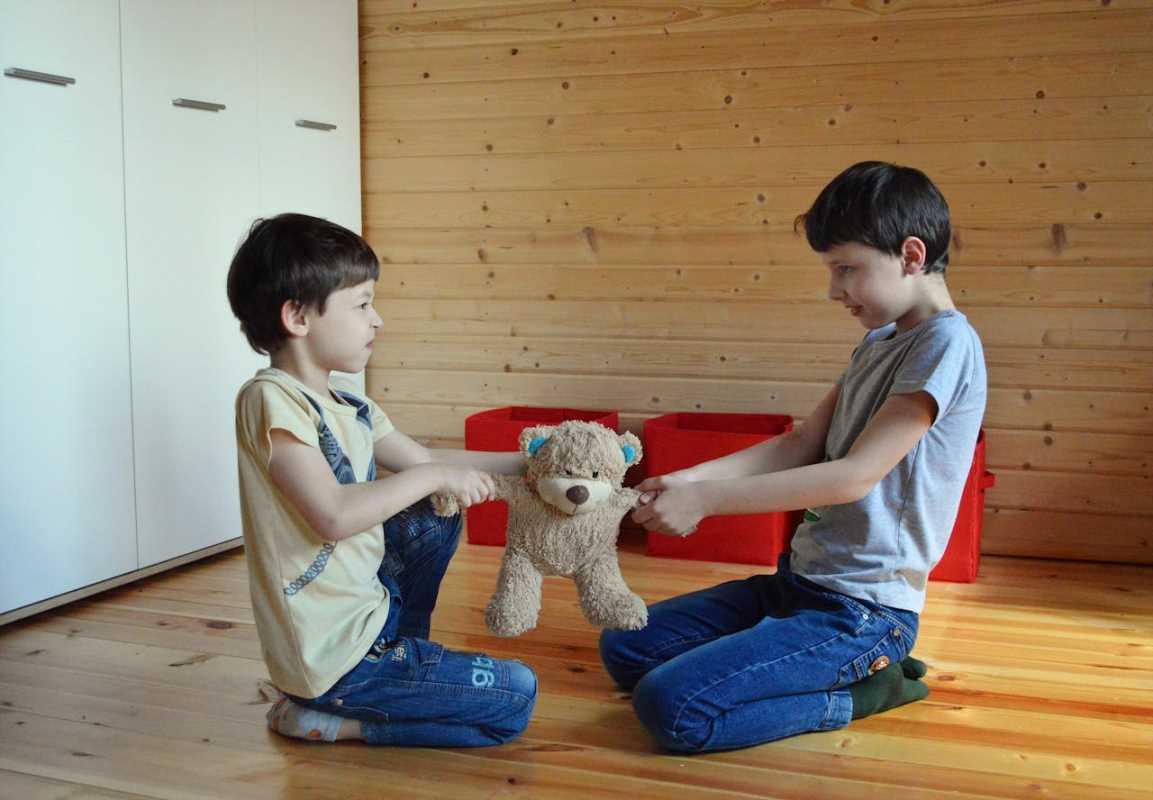Sibling relationships are some of the longest-lasting connections most people experience in their lives. They hold the potential to bring joy, support, and understanding—but they can also be riddled with conflict, unresolved disagreements, money problems, and emotional strain, especially when tensions have gone unchecked for years. Left unaddressed, these issues may not only harm your relationship with your sibling but also affect your mental and emotional well-being.
This guide will explore practical approaches for recognizing, navigating, and resolving long-standing tensions among siblings. You'll learn why addressing these conflicts is essential and gain actionable strategies for improving communication, mending past grievances, and fostering healthier relationships. By tackling these challenges with intention and empathy, you can create more meaningful familial bonds that stand the test of time.
1. Acknowledge the Conflict Exists
Avoiding conflict doesn’t make it disappear. Long-standing tensions often linger because they’ve never been directly addressed. Ignoring the issue might seem easier in the short term, but it can cause resentment to grow and make reconciliation harder down the line.
Friction between siblings is rooted in various experiences, like childhood rivalries, misunderstandings, money issues, or unresolved hurt feelings. These conflicts can surface during family gatherings, casual conversations, or even extended periods of silence. Acknowledging there’s tension is the first step toward addressing it.
Start by reflecting on the specific causes of the rift. Consider asking yourself questions like, “What moments led to this tension?” or “How might my actions have contributed?” Then, approach your sibling with honesty. For example, say, “I’ve noticed we’ve been distant, and I’d like to work on improving things between us.”
2. Revisit Past Issues with Care
Long-standing sibling tensions often trace back to past grievances. These can range from perceived favoritism in childhood to unresolved arguments that have festered for years. Revisiting the past may feel uncomfortable, but ignoring it can leave wounds unhealed.
Addressing these issues doesn’t mean assigning blame. Instead, it’s about understanding the events that led to the conflict and gaining closure. This process can help both siblings move forward with a mutual sense of clarity and understanding.
Choose a calm, private setting to discuss sensitive topics. Use language that centers on your experience—statements like, “I felt hurt when…” can open up dialogue without making accusations. Focus on expressing your feelings rather than revisiting events to point fingers or argue about who was right.
3. Improve Communication Patterns
Many long-term sibling tensions stem from miscommunication or a lack of communication entirely. Poor communication habits, like being overly defensive or avoiding difficult conversations, can exacerbate existing issues. Developing better ways to express thoughts and listen actively can go a long way toward resolving conflicts.
Practice open and respectful communication. When speaking with your sibling, pause to truly hear their perspective rather than planning your response. Avoid interrupting, and repeat key points to show you understand. For example, say, “I hear that you felt I was dismissive in the past, and I want to make sure I change that moving forward.” This acknowledgment validates their feelings while keeping the conversation constructive.
4. Set Healthy Boundaries
Healthy boundaries are essential for any relationship to thrive—siblings included. If your sibling relationship has been strained for a long time, you may need to set limits on behaviors that have contributed to the tension. Whether it’s drawing a line with criticism, unsolicited advice, or constant comparisons, clear boundaries help establish mutual respect.
Boundaries also apply to emotional energy. If discussing certain topics becomes draining, it’s okay to steer the conversation in another direction or take a break when needed.
Communicate your boundaries calmly and clearly by focusing on your needs. For instance, say, “I’d appreciate it if we could avoid discussing this topic during family dinners. It often leads to arguments, and I want us to enjoy our time together.” Respect your sibling’s boundaries as well, and demonstrate your willingness to honor their limits.
5. Focus on Your Shared Values
Siblings often share core values and lived experiences that bond them, even in the face of disagreements. Highlighting these commonalities can remind both of you why the relationship is worth repairing. Whether it’s shared childhood memories, a mutual love for family traditions, or aligned principles, these elements can serve as a foundation for rebuilding trust and connection.
Bring up lighthearted or nostalgic topics during conversations to create a positive atmosphere. Discuss enjoyable past experiences, like memorable vacations or family celebrations, to help shift focus from conflict to connection. Strengthen your bond by engaging in activities you both enjoy, like cooking a favorite meal or watching a family movie together.
6. Be Patient with the Process
Healing long-standing tensions takes time and effort. Change won’t happen overnight, especially if both siblings have held onto hurt feelings for years. Rushing the process could lead to superficial resolutions that don’t address the root causes of the conflict. Patience, consistency, and empathy are crucial for long-term improvements in your relationship.
Remain committed, even if progress feels slow. Acknowledge small achievements, such as more open conversations or reduced tension during gatherings, to stay encouraged. Take note of any progress your sibling makes toward resolving the conflict, and voice your appreciation. For example, say, “I noticed we’ve been talking more openly lately. I value the effort you’re putting in.”
7. Bring in Neutral Support, If Needed
Some sibling conflicts require help from an outside perspective, especially when emotions run high or the issues seem insurmountable. A neutral third party, like a family counselor or mediator, can guide difficult conversations and offer strategies for healthier interactions.
Therapy isn’t about assigning blame; it’s about improving understanding and communication. Professionals can help siblings identify negative patterns and explore solutions in a safe environment.
Suggest counseling as a team effort to show collaboration, rather than framing it as something your sibling “needs.” You could say, “I think having a neutral person guide us through conversations could really help us understand each other better.” Research therapists who specialize in family dynamics to find someone who aligns with your needs.
Resolution Matters In These Scenarios
Unresolved sibling tensions can cast a shadow over family dynamics and individual well-being. These conflicts often affect self-esteem, create distance within the family, and reduce the ability to fully enjoy time together. Addressing these issues is an opportunity for growth, healing, and creating healthier dynamics for future generations to witness.
Recognizing and resolving sibling tensions doesn’t mean wiping away years of disagreements, but it allows you to move forward with better understanding and mutual respect. Healthy sibling relationships can offer a lifetime of support, encouragement, and companionship.
Advice for Strengthening Sibling Relationships
- Schedule Regular Check-Ins: Set aside time to check in with your sibling, even if it’s just a quick message. Regular communication fosters connection over time.
- Show Gratitude: Thank your sibling for positive moments, big or small. Expressing gratitude builds trust and goodwill.
- Pick Neutral Settings: Difficult conversations often go more smoothly in neutral spaces, like a coffee shop or park, where emotions feel less charged.
- Use Positive Reinforcement: Acknowledge their efforts to improve the relationship, no matter how small. This recognition can motivate further progress.
Sibling relationships may face challenges, but they also have the potential for immense joy, support, and personal growth.
 (Image via
(Image via





